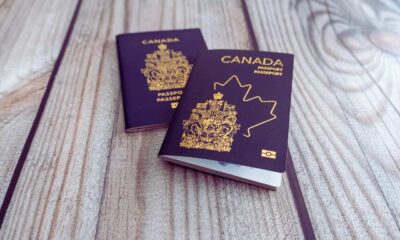Family Sponsorship
Canada Records Thousands of Parents and Grandparents Immigration Invitations in 2023

Following a robust October, the Parents and Grandparents Program (PGP) experienced a slight dip in November, with a 32% decrease in new arrivals during that month, as reported by Immigration, Refugees, and Citizenship Canada (IRCC). November welcomed 1,720 new permanent residents through the PGP, down from 2,530 in October, contributing to an overall 12.4% decline in Canada’s monthly immigration.
Yearly Progress and Projections
Despite the November downturn, the PGP closed the first 11 months of the year on a positive note, welcoming 26,600 new permanent residents. If this trend continues, the program is on track to surpass the previous year, with a projected 29,018 new permanent residents by the end of 2023, marking a 6.4% increase.
Ontario Leads in the Regional Distribution
Ontario, Canada’s most populous province, led the way in PGP arrivals, with 12,660 parents and grandparents settling there. Other provinces and territories also contributed to the program, with varying numbers of new permanent residents:
| Province Name | Number of Permanent Residents |
| Newfoundland and Labrador | 55 |
| Prince Edward Island | 10 |
| Nova Scotia | 185 |
| New Brunswick | 55 |
| Quebec | 2,315 |
| Manitoba | 1,095 |
| Saskatchewan | 730 |
| Alberta | 5,145 |
| British Columbia | 4,370 |
| Yukon | 25 |
| Northwest Territories | 15 |
| Nunavut | 0 |
Immigration Levels and Targets
With Canada’s increasing total immigration, the PGP’s future looks promising. As per the 2023-2025 Immigration Levels Plan, the immigration target for 2023 was set at 465,000 new permanent residents. Looking ahead, the plan aims to welcome 485,000 newcomers in 2024 and 500,000 in 2025.
PGP Financial Commitments and Timelines in the Journey
Applicants under the PGP are required to pay a $1,050 fee to sponsor a parent or grandparent, and the entire process takes up to 23 months. The sponsoring individual must submit an interest, receive an Invitation to Apply (ITA), and then submit two applications: the sponsorship application and the permanent residence application.
Sponsors outside Quebec commit to financially supporting their sponsored family members for 20 years. This support includes providing for basic needs such as food, clothing, utilities, shelter, fuel, household supplies, and healthcare not covered by public health insurance. The sponsorship agreement remains valid even in challenging situations like separation, unemployment, or the death of the main applicant.
Eligibility Criteria and Inadmissibility Factors
To be eligible
- Sponsors must be at least 18 years old, Canadian citizens, permanent residents, or registered under the Canadian Indian Act.
- They must demonstrate sufficient funds to support the sponsored family members and;
- Meet other requirements under the Immigration and Refugee Protection Act and Regulations.
Once sponsors are approved, the IRCC assesses the eligibility of those being sponsored. Requests for documents, including medical exam results, police certificates, and biometrics, are common. Sponsors should be aware that the sponsorship agreement obliges them to meet the requirements, even in challenging situations.
To avoid processing delays, applicants are encouraged to keep their contact information and application details up to date.
Application Processing and Withdrawal Options
The IRCC notifies applicants as soon as they begin processing the application, providing an application number and an acknowledgment of receipt. If a sponsor is deemed ineligible, they can choose to continue processing the permanent residence application for their family members, forgoing all fees.
Withdrawing the application allows the applicant to receive a refund of all fees, minus the $75 sponsorship fee.
Parents and Grandparents Program 2024
The Parents and Grandparents Program continues to be a significant pathway for family reunification in Canada. As the program evolves and immigration trends fluctuate, staying informed about eligibility criteria, financial commitments, and the application process becomes crucial for both sponsors and applicants. Stay connected for more updates on immigration programs and initiatives shaping Canada’s demographic landscape.
























